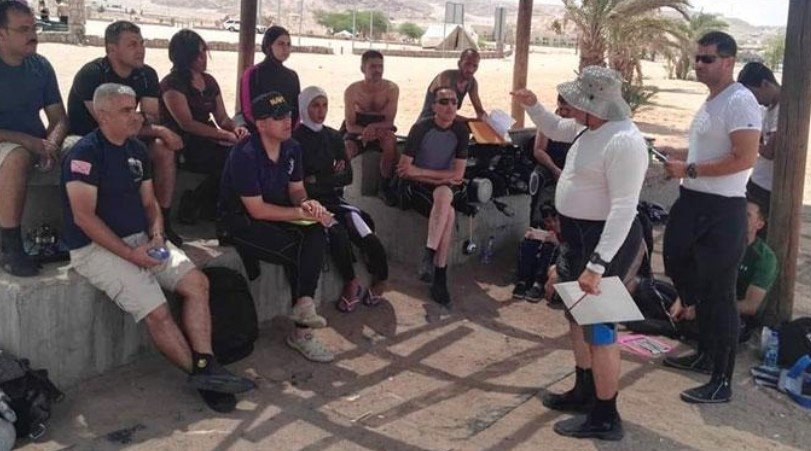Diving into the Gulf of Aqaba, Mahmoud Awartani, a Jordanian diving teacher, gradually loosened the angling nets folded over the coral reefs with a couple of scissors and afterward took the angling nets back to the coast.
This is a video cut appeared by Awartani who has been training diving since 2003 in his very own diving focus situated on the upper east side of the Red Sea inlet.
Be that as it may, eco-diving is the thing that he gets a kick out of the chance to do during his extra time: gathering human waste submerged and attempting to tidy up the sea.

“In contrast to fun-diving, eco-diving requires experienced diving abilities, just as information about how to tidy up the ocean, and recognition with the submerged organic environment,” Awartani said.
“Diving is another life for me. Each time I see brilliant corals and fish, I feel like all my negative feelings are discharged,” he included.
During the eco-diving, he needs to manage various difficulties, for example, the stone fish covered by the coral reef since a touch by its poisonous cut may cause genuine damage.
It is basic to instruct students to recognize various types of coral reefs and fish in order to shield them from hazardous species and consequently marine life from man-made harm, Awatani told Xinhua.
These days, countless visitors rush to Aqaba consistently to make the most of its vivid coral reefs and fish.
With a 26-km-long coastline, the Jordanian waterfront city, home to a populace of more than 100,000, pulled in around 1 million visitors in 2019, as indicated by the official information discharged by the Aqaba Special Economic Zone.
“Eco-diving is self-work to ensure the environment, which probably won’t be reasonable for everybody. Yet, it is our basic obligation to deal with the environment,” Awartani said.
